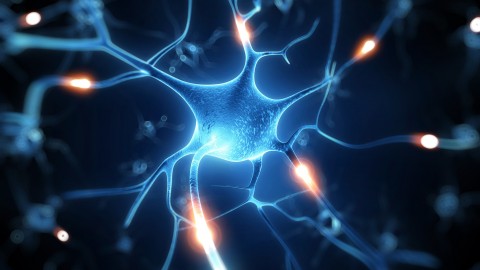Epilepsy is a central nervous system (neurological) disorder in which brain activity becomes abnormal, causing seizures or periods of unusual behavior, sensations, and sometimes loss of awareness. Anyone can develop epilepsy. Epilepsy affects both males and females of all races, ethnic backgrounds and ages.
Symptoms
Because epilepsy is caused by abnormal activity in the brain, seizures can affect any process your brain coordinates. Seizure signs and symptoms may include:
- Temporary confusion
- A staring spell
- Uncontrollable jerking movements of the arms and legs
- Loss of consciousness or awareness
- Psychic symptoms such as fear, anxiety or deja vu
Symptoms vary depending on the type of seizure. In most cases, a person with epilepsy will tend to have the same type of seizure each time, so the symptoms will be similar from episode to episode.
Classification
Focal seizures: When seizures appear to result from abnormal activity in just one area of your brain, they’re called focal (partial) seizures. These seizures fall into two categories:
- Focal seizures without loss of consciousness. Once called simple partial seizures, these seizures don’t cause a loss of consciousness. They may alter emotions or change the way things look, smell, feel, taste or sound. They may also result in involuntary jerking of a body part, such as an arm or leg, and spontaneous sensory symptoms such as tingling, dizziness and flashing lights.
- Focal seizures with impaired awareness. Once called complex partial seizures, these seizures involve a change or loss of consciousness or awareness. During a complex partial seizure, you may stare into space and not respond normally to your environment or perform repetitive movements, such as hand rubbing, chewing, swallowing or walking in circles.Symptoms of focal seizures may be confused with other neurological disorders, such as migraine, narcolepsy or mental illness. A thorough examination and testing are needed to distinguish epilepsy from other disorders.
Generalized Seizures: Seizures that appear to involve all areas of the brain are called generalized seizures. Six types of generalized seizures exist.
- Absence seizures. Absence seizures, previously known as petit mal seizures, often occur in children and are characterized by staring into space or subtle body movements such as eye blinking or lip smacking. These seizures may occur in clusters and cause a brief loss of awareness.
- Tonic seizures. Tonic seizures cause stiffening of your muscles. These seizures usually affect muscles in your back, arms and legs and may cause you to fall to the ground.
- Atonic seizures. Atonic seizures, also known as drop seizures, cause a loss of muscle control, which may cause you to suddenly collapse or fall down.
- Clonic seizures. Clonic seizures are associated with repeated or rhythmic, jerking muscle movements. These seizures usually affect the neck, face and arms.
- Myoclonic seizures. Myoclonic seizures usually appear as sudden brief jerks or twitches of your arms and legs.
- Tonic-clonic seizures. Tonic-clonic seizures, previously known as grand mal seizures, are the most dramatic type of epileptic seizure and can cause an abrupt loss of consciousness, body stiffening and shaking, and sometimes loss of bladder control or biting your tongue.
Causes
Epilepsy has no identifiable cause in about half the people with the condition. In the other half, the condition may be traced to various factors, including:
- Genetic influence. Some types of epilepsy, which are categorized by the type of seizure you experience or the part of the brain that is affected, run in families. In these cases, it’s likely that there’s a genetic influence.
- Researchers have linked some types of epilepsy to specific genes, but for most people, genes are only part of the cause of epilepsy. Certain genes may make a person more sensitive to environmental conditions that trigger seizures.
- Head trauma. Head trauma as a result of a car accident or other traumatic injury can cause epilepsy.
- Brain conditions. Brain conditions that cause damage to the brain, such as brain tumors or strokes, can cause epilepsy. Stroke is a leading cause of epilepsy in adults older than age 35.
- Infectious diseases. Infectious diseases, such as meningitis, AIDS and viral encephalitis, can cause epilepsy.
- Prenatal injury. Before birth, babies are sensitive to brain damage that could be caused by several factors, such as an infection in the mother, poor nutrition or oxygen deficiencies. This brain damage can result in epilepsy or cerebral palsy.
- Developmental disorders. Epilepsy can sometimes be associated with developmental disorders, such as autism and neurofibromatosis.
Risk Factors
Certain factors may increase your risk of epilepsy:
Age. The onset of epilepsy is most common in children and older adults, but the condition can occur at any age.
Family history. If you have a family history of epilepsy, you may be at an increased risk of developing a seizure disorder.
Head injuries. Head injuries are responsible for some cases of epilepsy. You can reduce your risk by wearing a seat belt while riding in a car and by wearing a helmet while bicycling, skiing, riding a motorcycle or engaging in other activities with a high risk of head injury.
Stroke and other vascular diseases. Stroke and other blood vessel (vascular) diseases can lead to brain damage that may trigger epilepsy. You can take a number of steps to reduce your risk of these diseases, including limiting your intake of alcohol and avoiding cigarettes, eating a healthy diet, and exercising regularly. Dementia. Dementia can increase the risk of epilepsy in older adults.
Brain infections. Infections such as meningitis, which causes inflammation in your brain or spinal cord, can increase your risk.
Seizures in childhood. High fevers in childhood can sometimes be associated with seizures. Children who have seizures due to high fevers generally won’t develop epilepsy. The risk of epilepsy increases if a child has a long seizure, another nervous system condition or a family history of epilepsy.
Complications
Having a seizure at certain times can lead to circumstances that are dangerous to yourself or others.
Falling. If you fall during a seizure, you can injure your head or break a bone.
Drowning. If you have epilepsy, you’re 15 to 19 times more likely to drown while swimming or bathing than the rest of the population because of the possibility of having a seizure while in the water.
Car accidents. A seizure that causes either loss of awareness or control can be dangerous if you’re driving a car or operating other equipment. Many states have driver’s license restrictions related to a driver’s ability to control seizures and impose a minimum amount of time that a driver be seizure-free, ranging from months to years, before being allowed to drive.
Pregnancy complications. Seizures during pregnancy pose dangers to both mother and baby, and certain anti-epileptic medications increase the risk of birth defects. If you have epilepsy and you’re considering becoming pregnant, talk to your doctor as you plan your pregnancy. Most women with epilepsy can become pregnant and have healthy babies. You’ll need to be carefully monitored throughout pregnancy, and medications may need to be adjusted. It’s very important that you work with your doctor to plan your pregnancy.
Emotional health issues. People with epilepsy are more likely to have psychological problems, especially depression, anxiety and suicidal thoughts and behaviors. Problems may be a result of difficulties dealing with the condition itself as well as medication side effects.
Other life-threatening complications of epilepsy are uncommon, but may happen, such as:
- Status epilepticus. This condition occurs if you’re in a state of continuous seizure activity lasting more than five minutes or if you have frequent recurrent seizures without regaining full consciousness in between them.
- People with status epilepticus have an increased risk of permanent brain damage and death.
- Sudden unexpected death in epilepsy (SUDEP). People with epilepsy also have a small risk of sudden unexpected death. The cause is unknown, but some research shows it may occur due to heart or respiratory conditions.
Homeopathic Treatment
Epilepsy typically affects the nerve cells of brain and triggers abnormal electrical signals, which seem like shocks and bring about convulsions. This condition affects both children and adults alike. Conventional medications that are used to treat epilepsy tend to produce side effects such as forgetfulness, restlessness and sometimes lethargy. In contrast, homeopathic medications used for treating epilepsy focus on the clinical history of the individual and produce minimum side effects. These drugs are prescribed keeping in mind the triggers which bring about epileptic episodes. Hence, they also help prevent recurrence of epilepsy.
- Artemisia vulgaris
- Belladonna
- Bufo rana
- Cicuta
- Chamomilla
- Conium Mac
- Hyoscyamus
- Nux vomica
- Plumbum Met
- Stramonium











Quality articles or reviews is the important to attract the
visitors to go to see the website, that’s what this website is providing.